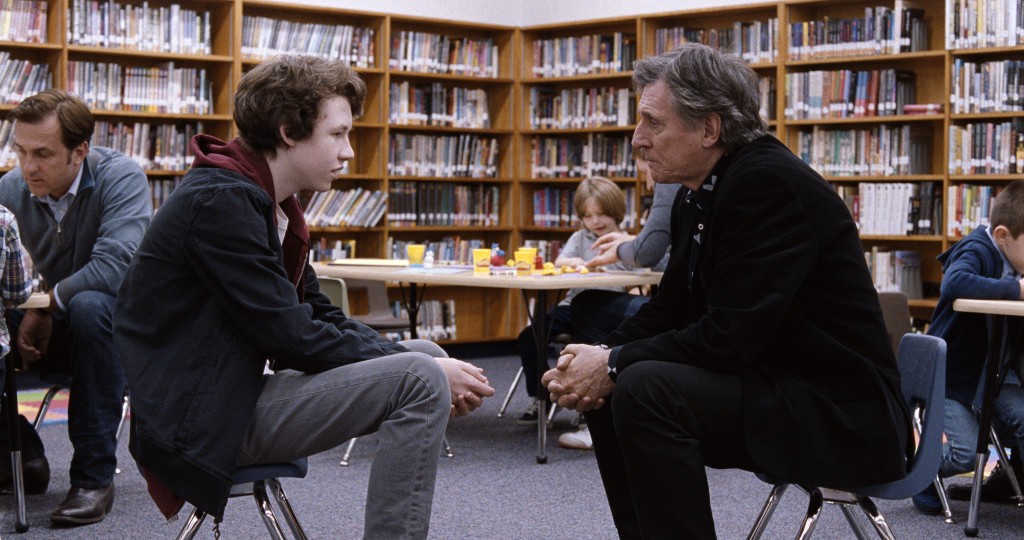“Louder Than Bombs” is Danish director Joachim Trier’s first English language venture. He tells the story of Isabelle Reed, a war photographer who is deeply conflicted between being a great journalist, and a good mother and wife. Her mysterious death creates a void in the lives of her husband and two sons, two years after her death.
Isabelle Huppert plays Reed and makes the screen come alive every time she graces it. The images and stories around her are more profound than the relatively more trivial ones around her family members. Images of Reed in war-torn countries, having faraway adventures, explain justly her passion for a craft that threatens to erode her personal life. The rest of the movie is in stark opposition to these (sometimes literally) explosive scenes.
Gabriel Byrne plays Reed’s husband who is learning to be a more involved father after his wife’s untimely demise. He does this by physically stalking his teenage son around his high school and the city. Not the best move, you’d say. Then there is Reed’s older son, played by Jesse Eisenberg, who decides to visit his childhood home in order to escape his new responsibilities as a father. The film believably creates that surprising sense of normality that surrounds a person who has an extraordinary life. Trier constructs this contrast triumphantly. I personally found myself craving more shots of Reed and her courageous career. I did not however, feel much sympathy for Reed’s husband or her sons. They are not the nicest of people. They do some not so very nice things which they can’t really blame on Reed’s death.
The film is visually spectacular. The war images are authentic and striking, as are the shots of quiet suburban life. Of note is the scene of the car crash that is technologically superlative and wonderfully manages to be poetic at the same time. The way Trier tells the story and switches up the narrative between varied voiceovers showcases his talent as a filmmaker. He truly brings something new to cinema.
“Louder Than Bombs” has a thin plot and it slips into sentimentality too often. The scene where Conrad, Reed’s teenage son, tries to suffocate himself with a plastic bag to defy his father, is a good example of this uncomfortable sentimentality. The film moves patiently so there is ample time for character development. The end left me a little up in the air and craving some sort of resolution. I found the film to not be as cohesive as I hoped. I didn’t get the sense that this is a strong family where a lot of intimacy was unfortunately lost. Instead the intimacy felt forced. It would have been more interesting if Trier had shown how the lack of intimacy in the first place was negatively affecting the family members’ recovery from trauma after the death. There are some sweet moments between Reed and her family in the film but they are shallow. I also got the sense that Reed’s successful career was blamed for the failure of her relationships, which in this day and age, is a very unfair and untrue judgement to make. The war journalist lifestyle is hard on Reed physically and emotionally, but on top of all these stresses she has to deal with the enormous burden of guilt.
“Louder Than Bombs” is a stylistic project with excellent camerawork. It keeps things simple but tries hard to show you that it is not trying hard. It is an entertaining and heartfelt film but I was left wanting more definition and more heart.
For tickets and schedule information check out VIFF’s website.
-Prachi Kamble

